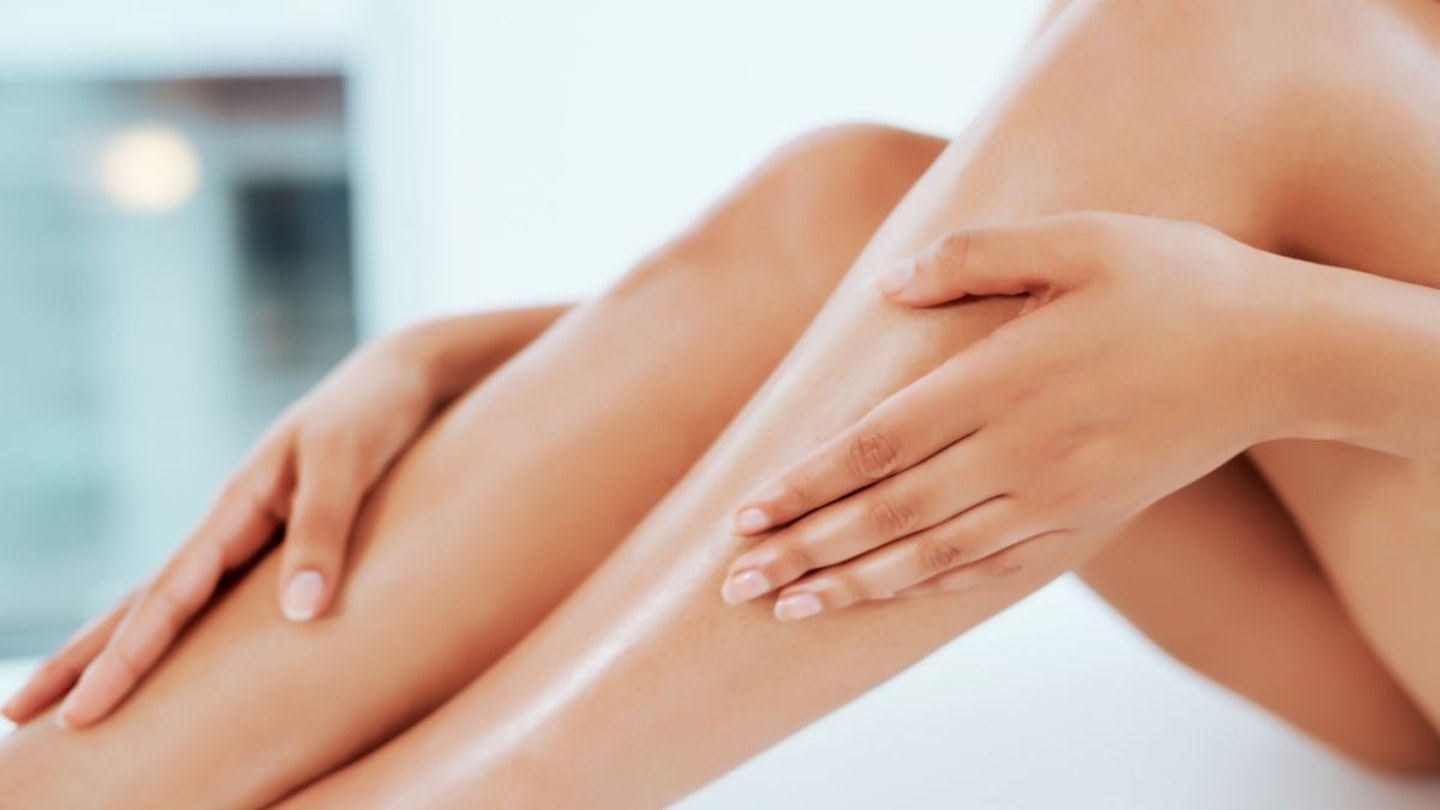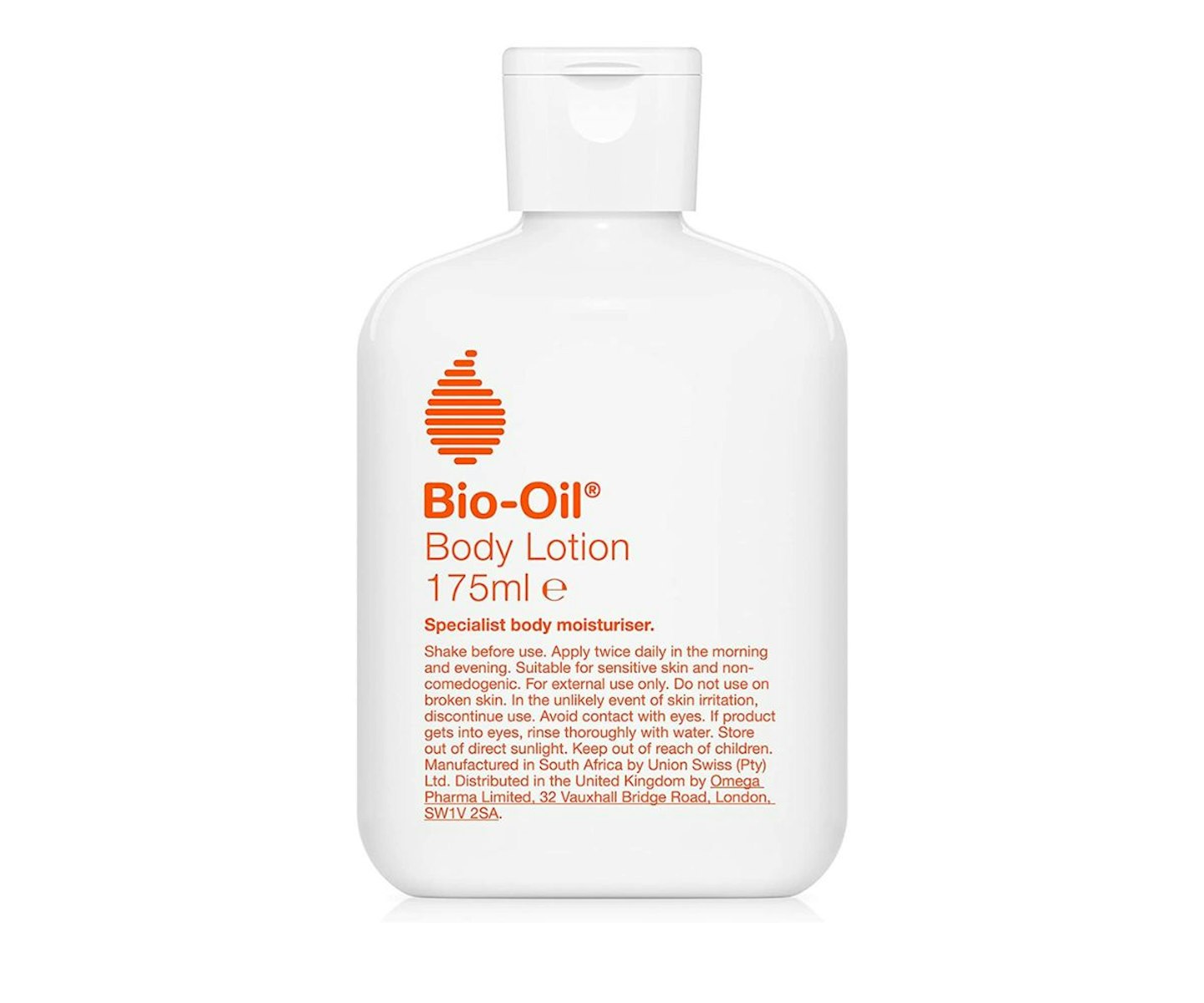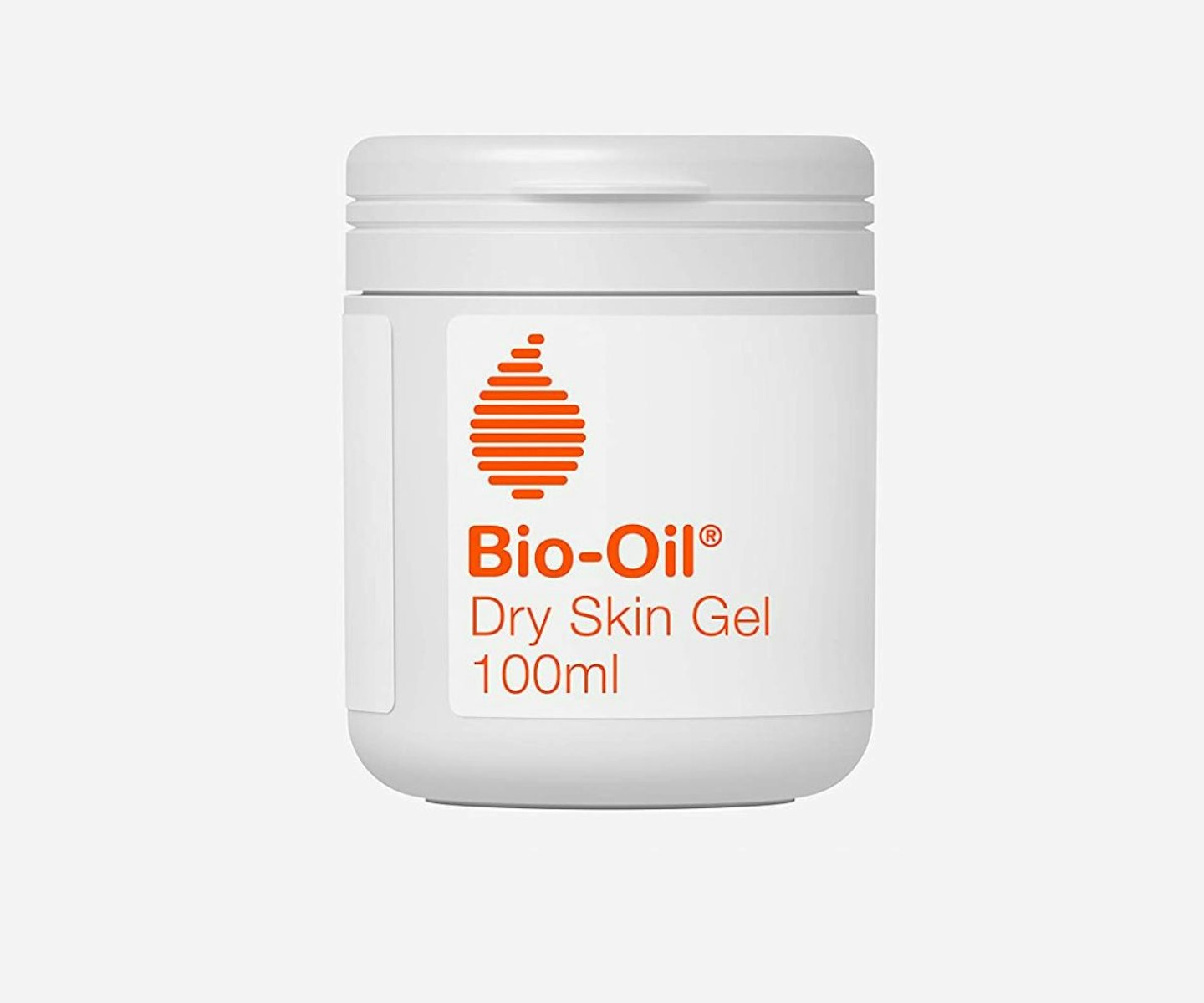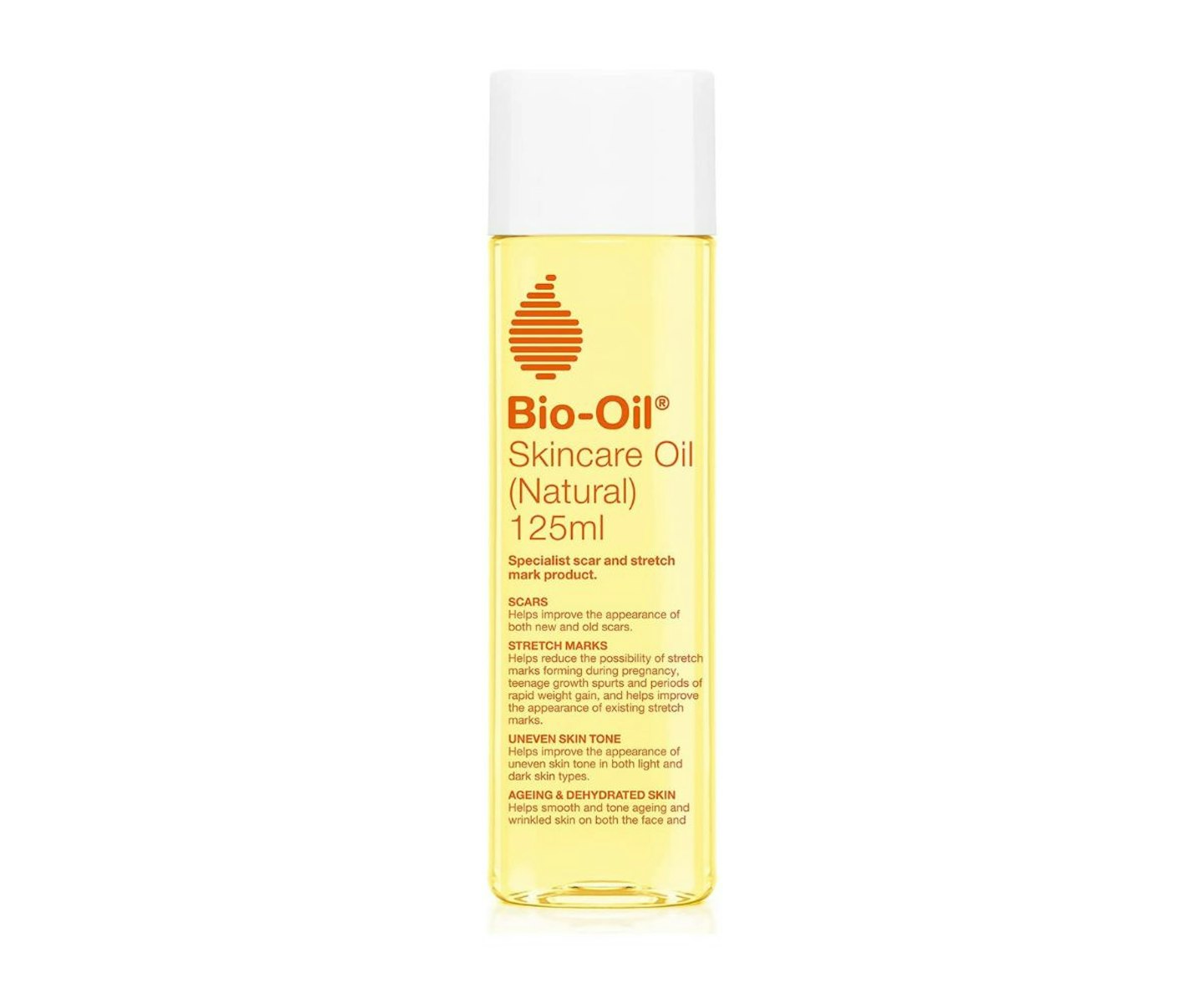Despite the fact that scars are completely normal, sometimes they can affect our confidence at the best of times. Thankfully, Bio-Oil has been clinically proven as an effective scar treatment to improve the appearance of acne scars, pigmentation and wrinkles. Here at Yours, we review Bio-Oil for scars, its benefits and how it works.
We also reached out to Dr Hiba Injibar, the Consultant Dermatologist at the Dermasurge Clinic to give us some insight into scars, answer some frequently asked questions and offer her expert advice. Dr Hiba Injibar is renowned for having honed her craft in Saudi Arabia and Lebanon before bringing her exceptional talents to London.
What is Bio-Oil?
Bio-Oil is a cosmetic oil developed by the brand of the same name to improve the appearance of scars, stretch marks, pigmentation and wrinkles. It is the world’s leading scar and stretch mark product recommended by healthcare professionals with proven results in clinical trials. Bio-Oil should be applied to the area and massaged in circular motions until the oil is completely absorbed into the skin.
How does Bio-Oil work?
Although it's unsure exactly how this oil works, its list of ingredients that are rich in vitamins may give us a clue. The formula contains a blend of essential oils and vitamins to help to promote cell turnover, hydrate the skin and promote elasticity.
Not only do Vitamin A and Vitamin E work to hydrate and tone the skin, but essential plant oils have their benefits too. Chamomile and lavender work to soothe the skin. While, calendula and rosemary have anti-inflammatory, antiseptic and antioxidant properties. Here are just some of the benefits of applying Bio-Oil.
What are the benefits of using Bio-Oil for scars?
Scars: Improves the appearance of both new and old scars.
Stretch marks: Reduces the possibility of stretch marks and improves the appearance of existing stretch marks.
Pigmentation: Improves the appearance of pigmentation marks and blemishes.
Wrinkles: Smooths and tones ageing and wrinkled skin on both the face and body.
Dry skin: Supplements the skin's natural oils.
Bio-Oil Skincare Oil: Tried and tested review
By Affiliate Managing Editor, Sophie Knight
"I have been using Bio-Oil for years now - I admit to having a bit of a patchwork quilt situation with my abdomen, thanks to two C-sections, a hip surgery, and other invasive operations. I started using this oil thanks to a recommendation from another mother who swore by it. Now, I pass that recommendation on to any friends who need some TLC after surgery or injuries.
"It’s easy to apply and feels very smooth and silky on the skin. It rubs in and is absorbed quickly unlike some other oils I have used. The appearance of my scars has always improved after using the oil; it’s impossible to give 100 per cent of that success to Bio-Oil without having a non-treated scar area to compare it to. But I know the scars are soft, paler and smoother than before using it."
Best Bio-Oil for scars
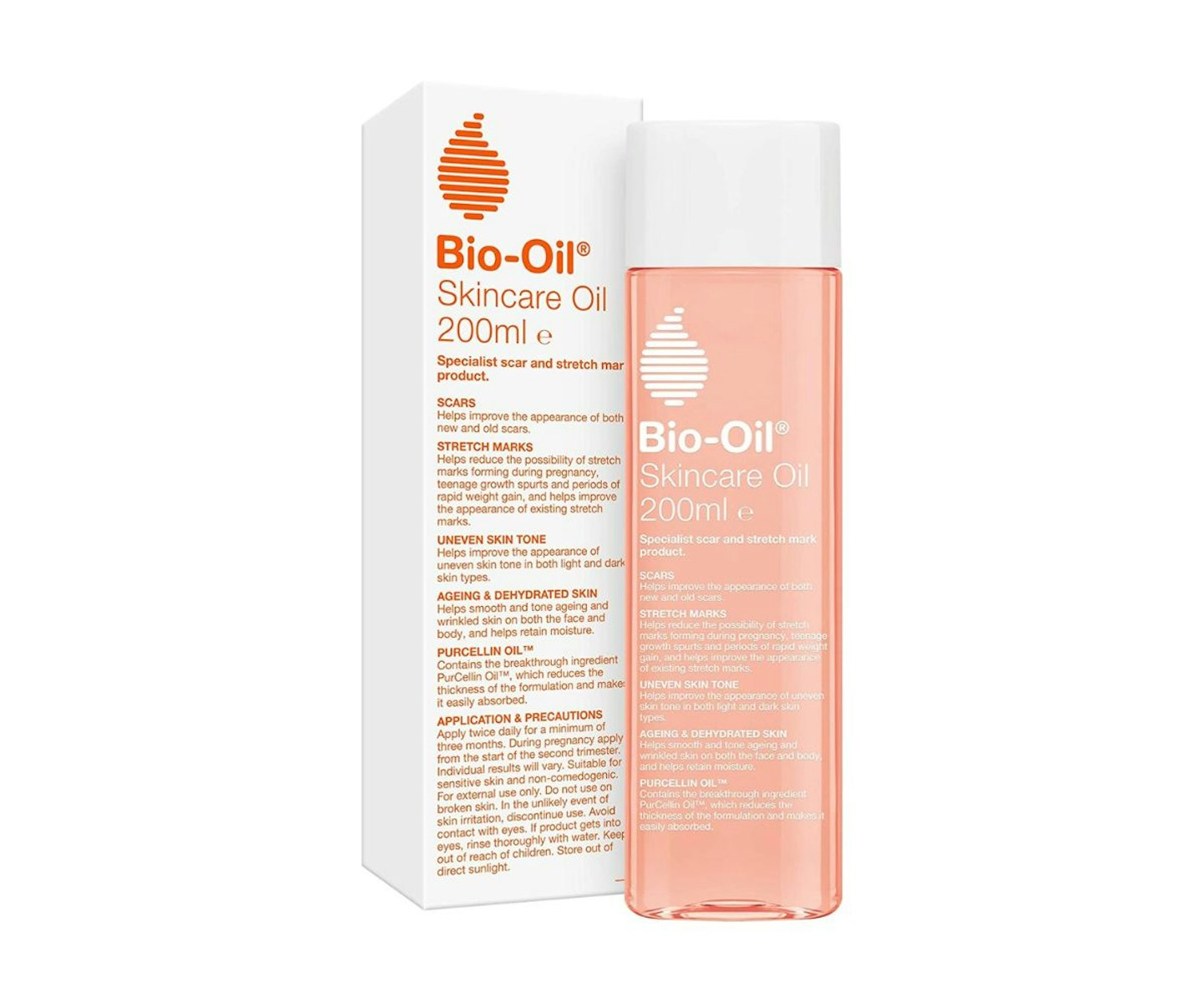
"I do also advocate using Bio-Oil for the practice of touching and massaging your scars. It’s important to manipulate the skin to improve healing; but also for your mental strength and wellbeing, and connecting with your body. With my first C-section, it was months before I touched my scar, and once I did, a lot of emotion came out. Now I massage and treat my scars regularly for healthy skin and a healthy mind.
"The only slight downside to Bio-Oil is that it does feel quite medicinal, not a pampering product; the branding is very healthcare in appearance, and the smell - while pleasant - isn’t as luxury as you’d find with a normal body oil. But then, this isn’t any old normal body oil. The benefits definitely outweigh the appearance.
"I would recommend this to any new mums with either surgery scars or stretch marks, not only with the intention of helping the skin heal, but to enable you to connect with your amazing bodies too."
Bio-Oil for scars
Best Bio-Oil lotion
Bio-Oil is also a perfect solution to improve the complexion for both light and dark skin types when the skin tone is uneven and smoothing fine lines and wrinkles caused by ageing skin.
Review: "I started using Bio-Oil a few years ago when I ran out of my usual fave cream, I'd bought some to treat a new scar. Well, I've been using it on my face ever since and I love it. As a 63-year-old, you don't expect miracles for anything you put on your face, but this seems to have held back any new wrinkles. I'd recommend it to anyone."
Best Bio-Oil for dry skin
Dry skin is a common condition caused by insufficient oil production in the skin which causes the top layer of the skin to dry out. Bio-Oil’s specialist dry skin formulation is easily absorbed by the skin which helps the skin to retain moisture.
Review: "Bought this for my mother for the scarred skin on her leg that she is self-conscious about. She uses it nightly before bed and she is quite happy with it, she says the dry bits of her skin are benefitting the most, her skin feels really really soft after she's used it."
Best natural Bio-Oil
Bio-Oil Natural Skincare Oil is clinically proven to help improve the appearance of scars, stretch marks, ageing skin and uneven skin tone. Its unique formulation is totally natural, containing oils for your daily skincare routine.
Review: "Much lighter colour, fragrance and greasiness than the original Bio Oil and I much prefer this one. Massage a few drops of oil, don't use too much. in a circular motion on areas of your skin where it might be dry, flaky or maybe even where there are healed scars, stretch marks. Won't make those marks disappear but will help to moisturise the surrounding skin and leave it looking in better condition and feeling more elastic. Improved quality of the skin makes everything look better. Soaks in and dries quickly without leaving sticky residue or marking clothes. Use this regularly and always go back to it when my skin needs a boost."
FAQs
How are scars formed?
Dr Hiba Injibar, Consultant Dermatologist at Dermasurge gave us some insight into how exactly scars are formed in the skin. "Scars are formed when the normal architecture of the skin is disrupted whether by disease, acne, inflammation or by trauma like a cut, injury, burns or surgery," Dr Injibar answered.
"When the skin is trying to repair itself very quickly, it forms scar tissue. This is composed of collagen fibres that are haphazardly arranged and vessels trying to close the wound. So, in other words, the normal architecture of the skin is disrupted."
What are the different types of scars?
"One of the most common types of scarring is acne scars. Acne scars are the result of a break in the follicle wall due to inflamed blemishes, picked spots or pores being filled with excess oil, dead skin cells and bacteria. If the break is shallow, these acne scars usually heal within a few weeks as opposed to deeper lesions in the skin that can take months to repair," Dr Injibar explained.
"Whilst there are several types of scarring, in my experience, there are three common types of acne scarring. The first is ice-pick scars that look as though the skin has been punctured with sharp ice picks. They are small, narrow, pitted, deep holes on the surface of your skin. The second is boxcar scars, which are broad craters on the skin with defined edges. The last is rolling scars, which are also broad craters on the skin but, this time, with sloping and curved edges."
How to reduce the appearance of scars?
"Treatment depends on the severity of the scarring," reveals Dr Injibar, "Keep acne-prone skin hydrated by moisturising regularly and use bi-weekly chemical peels to rejuvenate the skin and refine discoloured skin pigmentation.
"For more serious scarring such as keloid or hypertrophic scars, dermatologist treatment is required. The dermatologist will assess the wound and then decide which treatment is the best fit for your injury. If surgery is necessary, there is a technique whereby an aesthetic practitioner will gently cut lines into the skin where they know it will heal.
"Treatments include PRP treatments, laser treatments, microneedling, dermal fillers, chemical peels, creams, gels, pressure dressings or freezing scars. At Dermasurge, we offer scar reduction surgery to make the scar appear more natural and less noticeable."

This article contains expert advice from Dr Hiba Injibar, Consultant Dermatologist at Dermasurge.
